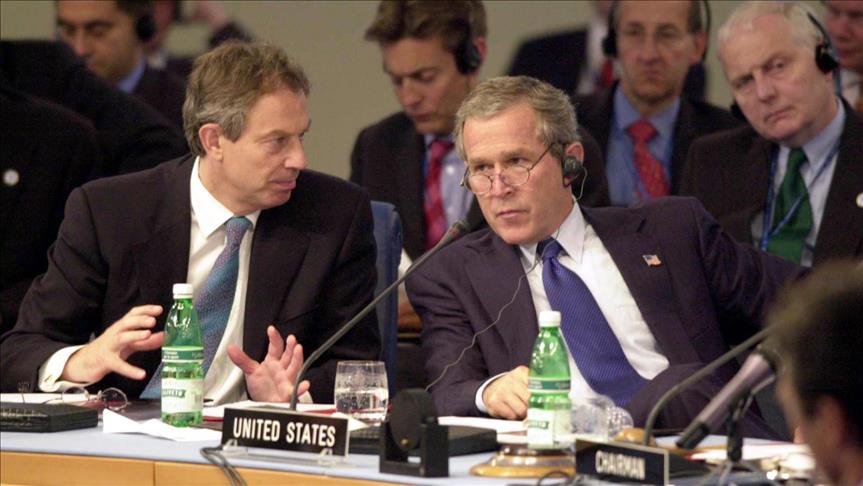UK report warns of repeating 2003 Iraq War mistake

The U.K. governance system is still lacking the safeguards to prevent a total disregard to “established decision-making processes” as witnessed in the run-up to the invasion of Iraq, a British parliamentary committee said Tuesday.
A coalition of Western forces invaded Iraq in 2003, claiming that then-leader Saddam Hussein possessed weapons of mass destruction.
Looking into the Chilcot Inquiry, which said the U.K. government led by the then-Prime Minister Tony Blair had failed to exhaust all peaceful options before joining the coalition, the Public Administration and Constitutional Affairs Committee (PACAC) argued that “there is still little to prevent a future Prime Minister from bypassing proper Cabinet consultation again”.
“The Chilcot Inquiry found that there were many such lost opportunities for proper Cabinet discussion on British policy towards the Iraq War and the planning for its aftermath,” the report said.
“This resulted in poor planning and decision making that contributed to the many failures of British policy in Iraq and the deaths that resulted,” it added.
Tony Blair had joined this coalition as a staunch supporter of the claims. The invasion led to years of protracted conflict.
"In 2002 Tony Blair promised [then-U.S. President] George Bush that 'I will be with you, whatever' committing the UK to war in Iraq without consulting the Foreign and Defence Secretaries, let alone the rest of the Cabinet,” the PACAC chair Bernard Jenkin said.
“Fifteen years later there are still no safeguards in place within the Government to prevent a Prime Minister acting so recklessly again,” he added.
Jenkin said the current prime minister has used the cabinet and committees “assiduously”, adding however “this is no guarantee for the future. It's therefore a perfect time to introduce such a safeguard, when the system is working well, not to wait for another catastrophic failure
A U.K. inquiry by Sir John Chilcot in 2016 said the Blair government had failed to exhaust all peaceful options before joining the coalition.
“The judgments about Iraq’s capabilities […] were presented with a certainty that was not justified,” the Chilcot report read.
“The decision to invade Iraq has left an indelible scar on British politics,” the PACAC report said.
“The consequences of that decision remain profound for the domestic politics of the UK and the US, and for our relations with other countries, as well as for the stability of the region,” it said. “The continuing loss of life of Iraqis underlines the failure of the post-conflict strategy.
“The Chilcot Inquiry was set up in order to provide some closure to the controversy but, for many, it has failed to do so and the seven-year inquiry itself has been controversial. The Public Administration and Constitutional Affairs Committee (PACAC) therefore launched a short inquiry into lessons for the conduct of inquiries and for the machinery of government.”
More than 250,000 people, including combatants but mostly civilians, are thought to have been killed in Iraq’s upheaval since 2003.